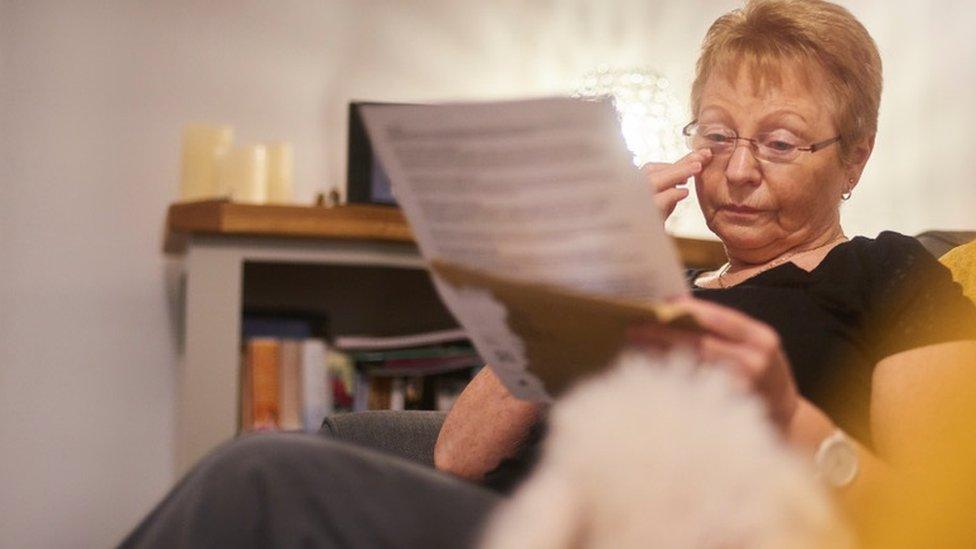Millions struggling to pay phone and internet bills
- Published

Many face difficult choices between essential goods and paying the bills
About 4.7 million households struggled to afford their telecoms bills this year, with more than a million having to cut back on items such as food and clothes in order to pay.
It comes as the coronavirus pandemic has an impact on household finances.
But the pandemic also means families are becoming increasingly dependent on internet services and home-working.
The difficult choices were , which called on the industry to offer more help.
It said it wanted firms that do not already offer a "targeted affordable tariff" to people on low incomes, to consider doing so.
It also reinforced its previous call for providers to rethink their debt and disconnection practices, to help those struggling to pay their bills.
Lindsey Fussell, Ofcom's network and communications group director, said lockdown rules had "laid bare" how dependent people are on a reliable internet connection.
"It's important that affordable options are available so everyone can stay connected, particularly those who have fallen on hard times," she said.
"It's clear providers can do more to support customers who are in financial difficulty."
While the proportion of customers disconnected for non-payment fell during the initial lockdown period, there was an increase between June and September to higher levels than before the pandemic.
BT and KCOM already offer so-called social broadband tariffs for those in most financial need.
But Richard Neudegg, head of regulation at Uswitch, said more could be done "to make struggling consumers aware of the support already available".
And when it comes to phone bills, there will be "many millions" of customers who are out of contract and overpaying by an average of 拢90 a year, he added.
Related topics
- Published15 November 2020
- Published17 December 2020